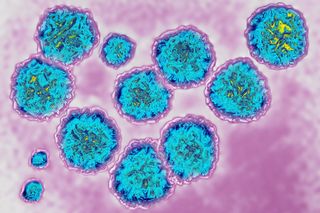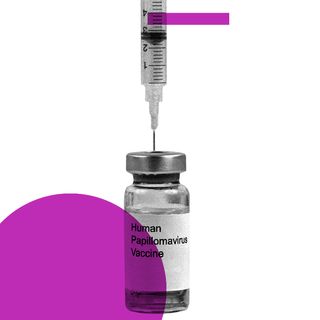
Everything You Need to Know About Hepatitis C
In India, 8.7 million people are living with chronic Hepatitis C.

The 2020 Nobel Prize in Medicine or Physiology was awarded to a trio of scientists from the US and the UK for their discovery of the Hepatitis C virus (HCV), which causes cirrhosis and liver cancer around the world, and is believed to be a major reason for liver transplants.
The virus affects 71 million people across the globe, and in India, researchers estimate that 8.7 million people are living with chronic HCV. The disease is most prevalent in Punjab, Haryana, Andhra Pradesh, Pondicherry, Arunachal Pradesh, and Mizoram. A lack of awareness about the disease makes it even more dangerous: “The mode of transmission of HCV is similar to that of HIV. It is dangerous because an infected person does not even know about it. So, the patient continues with his life and might infect others,” Homa Mansoor, a physician working with Médecins Sans Frontières, told Down To Earth in 2016, adding that early screening can make the treatment for HCV more efficacious.
What Is Hepatitis C?
The disease is characterized by inflammation and infection of the liver — a condition that develops upon being infected with the HCV. The incubation period for the virus can last anywhere between 14 to 80 days, but the average is understood to be 45. The infections itself can be either acute or chronic. The former can clear up in six months, but the latter lasts longer, even lifelong, and can devolve into cirrhosis, with the inflammation replacing healthy liver cells with scar tissue — and that can, in turn, makes cancer more likely.
Related on The Swaddle:
Everything You Need to Know About Hepatitis B
How is Hepatitis C diagnosed?
Since HCV infections are often asymptomatic at the initial stage, recent infections go undetected for most people. It is often only discovered when the symptoms develop to liver damage — which can take up to 10 to 20 years. At first, a test for antibodies is used to check if an individual is, or was in the past, infected with HCV. If the test turns up positive results, subsequent tests are used to determine whether the infection is chronic, the viral load in the blood, and the extent of liver damage. At present, in the US, it is recommended for all adults between the ages of 18 to 79 to be screened for HCV irrespective of the presence of symptoms, or of known liver disease.
How is Hepatitis C transmitted?
The HCV is very difficult to kill, and experts believe that even tiny drops of blood from an infected individual can contain the virus. Sharing non-sterile equipment for drug injection, tattoos, or body piercings, or blood transfusions or organ transplants are high-risk factors for transmission of HCV. Further, sharing personal hygiene items like glucose monitors, razors, nail clippers, toothbrushes, or other items that may have come into contact with infected blood, even in amounts too small to see, can transmit HCV.
HCV can also be spread through unprotected sex or even oral sex, if one is exposed to infected blood from another — but this is considered to be a rare mode of transmission for HCV. In addition, 6% of infants born to infected mothers, are also infected with HCV.
Related on The Swaddle:
Italian Study Finds Link Between Covid19 and Rare Blood Disorder In Children
What are the symptoms of Hepatitis C?
While most people infected with the HCV don’t have symptoms and don’t look or feel sick, some people do develop symptoms two to 12 weeks after first exposure. These can include yellow skin or eyes, loss of appetite, upset stomach, nausea, vomiting, stomach pain, fever, dark urine, light-colored stool, joint pain, and exhaustion. For those with chronic HCV infection, aside from liver damage, the general symptoms include chronic fatigue and depression. It is important to note here that even asymptomatic people can transmit HCV.
What is the treatment for Hepatitis C?
Once detected, HCV is typically treated using antiviral tablets for 10 to 12 weeks; depending on the severity of the infection, this regimen is believed to be effective at clearing the infection in more than 90% of people. The infection is considered to have been cured if the virus cannot be detected in the blood of the individual three months after treatment is completed. The US Centers for Disease Control also states that individuals who have cleared the virus or were successfully treated and cured can be re-infected by HCV. At present, there are no vaccines for HCV.
Devrupa Rakshit is an Associate Editor at The Swaddle. She is a lawyer by education, a poet by accident, a painter by shaukh, and autistic by birth. You can find her on Instagram @devruparakshit.
Related


Landmark Study Shows HPV Vaccine Protects Against Invasive Cervical Cancer
